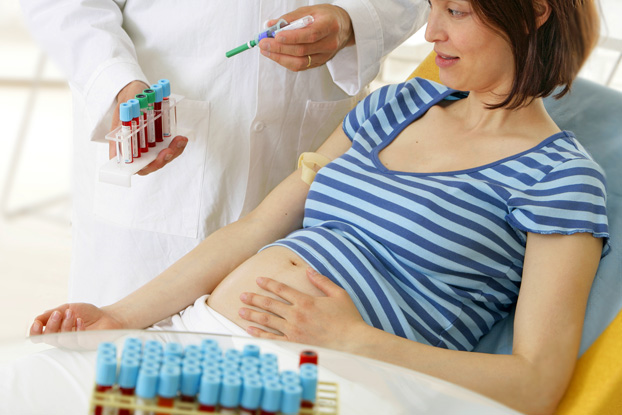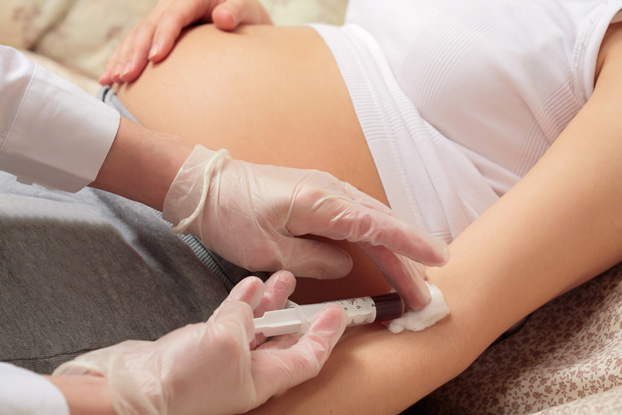It is the hope and goal of both pregnant women and their doctors that babies are always born healthy and at full-term. Sometimes though, complications during gestation can cause chromosomal anomalies to develop in the fetus, which can result in mild to severe genetic disorders. Aneuploidy screening can detect the possibility of such abnormalities in the chromosomes of cells early on in the pregnancy.
What is Aneuploidy Screening?
Human beings have their genetic information encoded in 46 chromosomes, but occasionally more or less than that number of chromosomes may occur. This is called aneuploidy, which is not a specific disorder, but rather a broad term that describes the cause of such conditions.
Aneuploidy occurs during cell division when the chromosomes do not separate properly in a developing embryo. These malformed chromosomes can have missing, extra, or altered genes that can cause genetic disorders, birth defects, and diseases. Aneuploidy can be inherited genetically or it can happen randomly. The most common condition that results from aneuploidy in humans is Down syndrome, which is characterized by extra genetic material from chromosome 21.
Is Aneuploidy Screening a Test?
No, aneuploidy screening is not a diagnostic test. Rather, it is an initial assessment of whether or not a fetus is at an increased risk for genetic disorders. However, in the event that screening indicates that a moderate or high risk for genetic problems is present, further diagnostic testing will be necessary.

Which Pregnant Women Should Get Aneuploidy Screening?
The American College of Obstetrics and Gynecology recommends that doctors discuss aneuploidy screening as soon as possible, most often at the very first prenatal appointment. Since chromosomal abnormalities occur in the earliest stages of fetal development, there is no reason for delay, and women should have access to reliable information about their pregnancies as early as screening allows.
While some chromosomal disorders are inherited, many are not, so all pregnant women are advised to receive the testing regardless of whether or not they have a family history of genetic disorders. For the same reason, women who have had unremarkable pregnancies in the past should still consider screening since aneuploidy can occur in any pregnancy, regardless of previous healthy births.
Women are also encouraged to get screened for aneuploidy no matter their age. Traditionally, pregnant women aged 35 and older were considered to be at a higher risk for having babies with genetic disorders, but chromosomal abnormalities can happen in the pregnancies of women at any age, so a risk assessment based solely on maternal age is not sufficient.
For certain high-risk women, an additional visit to perinatal specialist (maternal fetal specialist) may be recommended. These specialists can offer more information and additional testing pertinent to the specific needs of individuals based on a family history of aneuploidy or other factors.
What Does Aneuploidy Screening Entail?
Non-invasive aneuploidy screening is safe and easy. A blood sample taken between the 11th and 14th weeks of pregnancy can determine if further testing is necessary. Specific ultrasounds that look for anatomical indicators are also available.

Aneuploidy Screening is a Personal Choice
Aneuploidy screening should not be regarded with anxiety. Early and accurate assessments can reduce some of the normal worry that accompanies any pregnancy and should be considered as part of any routine prenatal care.
While aneuploidy screening is strongly recommended by medical professionals, it is an optional screening in your prenatal care. Whether or not to receive genetic screening is a personal decision and it is in a woman’s best interest to consider how such screening will affect her pregnancy depending on the results.
Counseling is available to help women and their families understand the benefits and risks of aneuploidy screening and discuss follow-up diagnostic testing and how to manage a pregnancy in the event of a positive result. The decisions a woman makes regarding aneuploidy screening and further diagnostic testing should be compatible with her individual values, and will be respected by her physicians at Kansas City ObGyn.
If you have any questions about what to expect from screening for chromosomal abnormalities, or would like to schedule your aneuploidy screening, please contact Kansas City Ob/Gyn today at This email address is being protected from spambots. You need JavaScript enabled to view it. or 913-948-9636.






